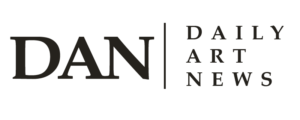June 2–19, 2022
Opening hours: Tuesday–Sunday 11am–6pm. Entrance is free of charge.
For the second time, the Karlsruhe University of Arts and Design (HfG) presents its annual graduates exhibition. It gathers diploma works, master theses and dissertations in the university’s atriums accompanied by a broad program reaching from panel discussions to film screenings, performances, and workshops.
As a graduation show, it includes works made for the attainment of an academic degree—but what do these works stand for beyond that?
First and foremost, they are witnesses to mutual exploration and play. Meaning, that they are the results of extensive collaborative processes. As temporary alliances, different forms of associations open up spaces for joint learning, support, and critique. These variations find expression in the title All we as. All we as leaves is a line from “Plainwater” (1995) by poet Anne Carson. We expand it to All we as light, All we as clouds, All we as moss, All we as waves, making them the titles for the thematic fields of the exhibition.
Secondly, they are expressions of what moved the graduates during the past years, what was on their minds and how they situated themselves in society, within the biosphere and virtual futures.
Starting from the cyclical progression of sunlight, the coming and going of love, to idiosyncratic practices of archiving, to places and situations that exist only in memory and require reconstruction: All we as leaves deals with loss, nostalgia, and the melancholy of the resurgent past.
The works in All we as waves deal with existing and to-be-designed social spaces and thus, communities: utopian designs that search for a new answer to the question “What is human?” on an architectural level. The struggle for places of assembly, the visibility of women in Karlsruhe’s cityscape, or the hyper(in)visibility of normed bodies are negotiated here.
All we as moss: This group deals with urgent ecological questions having an impact on human self-understanding. In this sense, the works invite us in different ways to develop a new relationship to the human and non-human entities surrounding us, to let them surprise and affect us.
Examining transformative technologies unites the works in All we as clouds. Media such as TikTok, YouTube, or cassettes are observed in different political conflicts and as detaching image and language from the body. The latter also becomes the subject of performative experimentation—what role does communication play in creating intimacy despite a physical distance? Artificial intelligences learn, reproduce and manipulate perception. What does creativity mean, then, and how will work adapt to it?
The fifth cluster, All we as light asks about the ideology of showing things: How and in what contexts is something shown? Who decides what is shown? And how does this affect perception? Showing can be funny, change conditions of perception and tell stories. But showing is never neutral, too, and is often turned into an ideological instrument.
With contributions by Vanessa Bosch, Oliver-Selim Boualam, Mustafa Büyükcoskun, Carina Fenderich, Kay Fleck, Lukas Fütterer, Vera Gärtner, Severin Geißler, Nathalie Gillen, Anna-Lina Helsen, Max Viktor Herbert, Julia Ihls, Sascha Jungbauer, Luis Ake Junker, Hanna Jurisch, Emma-Lilo Keller, Beate Klompmaker, Laura Kluge, Simon Knebl, Mio Kojima, Philippe Mainz, Lukas Marstaller, Leonie Mühlen, Charlotte Nies, Carina Obrecht, Zhou Pei, Lena Reitschuster, Sophia Schiller, Moritz Schottmüller, Jason Stewart, Anna Maria Tekampe, Alexander Theis, Dominic Thiel, Victor Van Wetten, Carmen Westermeier, Shuaitong Zong, and Phil Zumbruch.
The program includes guided tours with the curatorial team, workshops, screenings of the film diplomas, performances, reading circles as well as panel discussions with our guests.
You can find further information about the program or the graduate students on our dedicated website here.
Program & Coordination: Vanessa Bosch, Mio Kojima / Editor: Lena Reitschuster / Art Direction: Bárbara Acevedo Strange, Jannis Zell, Phil Zumbruch / Exhibition Design: Oliver-Selim Boualam.
Karlsruhe University of Arts and Design
Lorenzstr. 15
76135 Karlsruhe
Germany
T +49 721 82030
[email protected]
www.hfg-karlsruhe.de
Instagram / Facebook


